We use cookies to personalise your experience.


How to Write a Speech GCSE – Score 9 in English GCSE Exam
Ever pondered ‘How do I start my GCSE English speech?’ or ‘What should I write my GCSE speech on?’ Crafting a compelling speech can be daunting, especially when it’s for your GCSE English exam. This guide will help you navigate the nuances of the GCSE English speaking and listening topic ideas and master the art of speech writing.
What is the GCSE Speech Exam?
The Speech GCSE includes an assessment of students’ spoken language abilities. This assessment is an integral part of the English GCSE exam , where you are required to demonstrate your speaking and listening skills. Most students typically choose from a range of GCSE spoken language topic ideas and present a speech, followed by a discussion with the examiner. This assessment not only evaluates your knowledge of the topic but also the ability to structure your thoughts, use persuasive techniques , and engage the audience.
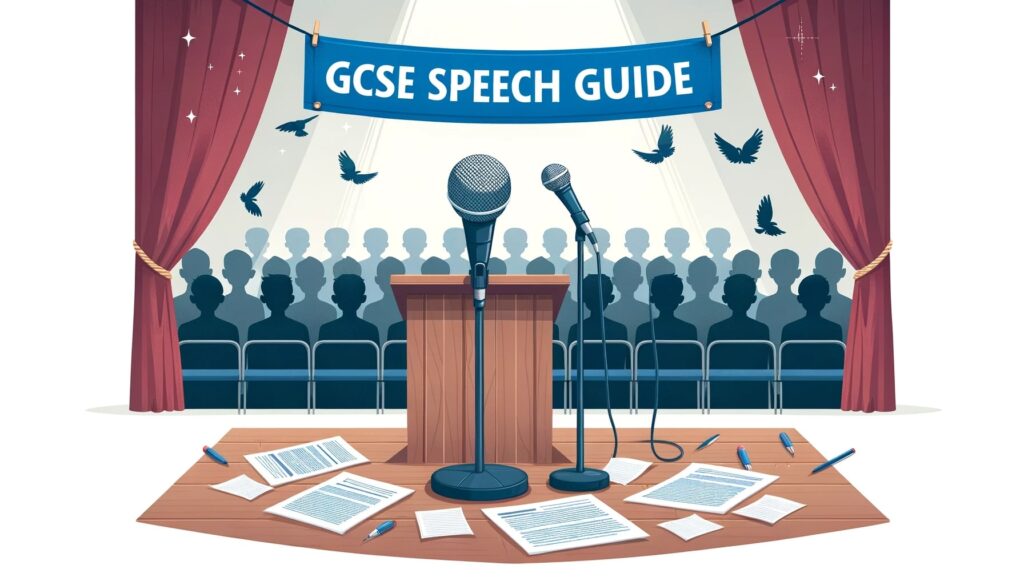
What’s the Good Starting Point for GCSE Speech?
While there is no one-size-fits-all approach to structuring your speech, understanding the basic speech layout can provide a solid starting point. Typically, you’ll want to start with an engaging introduction, followed by 2-3 key points that support your topic, and a compelling conclusion to wrap things up.
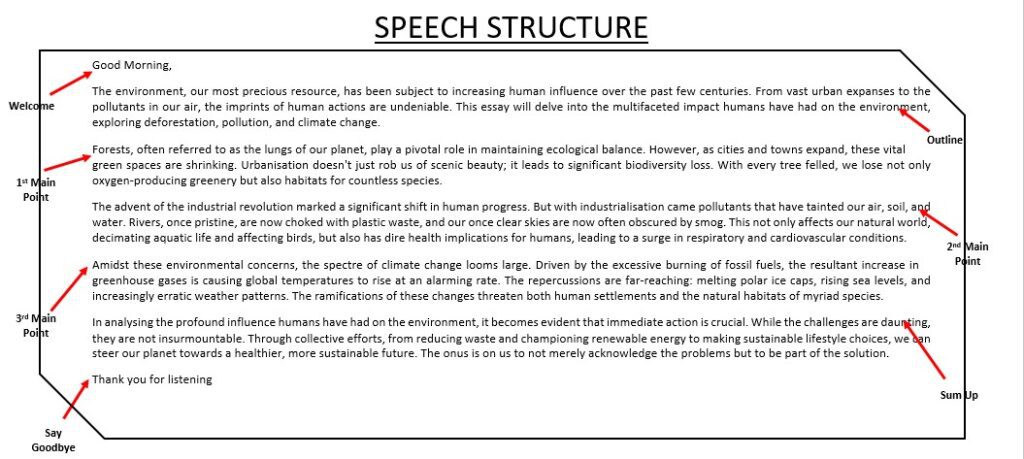
How to Choose the Right Topic For GCSE Speech?
Before you even begin writing a speech, it’s crucial to have a well-defined topic. Your topic sets the tone for your entire speech, so it has to be something you are passionate about and can speak on with authority. Moreover, a well-chosen topic significantly impacts what makes a good speech.
While your GCSE English speaking topic should ideally be interesting to your audience, it should also resonate with your own interests and strengths. This is the time to brainstorm English GCSE speaking ideas . The right topic can not only engage your audience but also allow you to showcase your oratory skills effectively.
Knowing Your Audience
If there’s one factor that can make or break your speech, it’s the audience. Knowing who you’re speaking to allows you to tailor your language, tone, and content to resonate with them effectively. Ask yourself the following questions:
The better you understand these aspects, the easier it will be to connect and make a meaningful impact, thus further defining what makes a good speech.
Ideas for Speaking and Listening GCSE English
Choosing a topic that resonates with your audience is key. Given the requirements for GCSE speaking exam topics, you may want to consider issues like climate change, social media’s impact on mental health, or the importance of voting. These subjects are not only engaging but also provide ample scope for discussion and argument.
Here are some English Speaking Exam Topic Ideas to Consider:
- Climate Change and Its Global Impact
- Social Media and Mental Health
- The Importance of Voting
- Artificial Intelligence and Ethics
- The Future of Work in a Post-Pandemic World
- The Role of Education in Shaping Character
- Sustainable Living and Consumer Choices
To sum up, here are some tips to consider:
Choose a topic that excites you; your enthusiasm will be contagious.
Make sure the topic is relevant to your audience.
Opt for subjects that are neither too broad nor too narrow.

The Structure of a Good GCSE Speech
A successful speech is more than just a string of words; it’s a well-thought-out sequence designed to captivate your audience. Here, we’ll delve into the speech structure and discuss how to structure a speech for maximum impact. A typical speech will consist of an introduction, body, and conclusion.
Introduction: Capture attention and state your main point.
Body: Build your argument or narrative with supporting evidence.
Conclusion: Summarise the key points and finish with a strong statement or call to action.
How do I start my GCSE English speech?
You have but a few precious moments to seize your audience’s attention. The way you start a speech can dictate whether your audience tunes in or zones out. The opening sets the tone and context for everything that follows, making it an integral part of how to open a speech effectively.
Dos and Don’ts of Starting Your GCSE Speech
- Open with a Provocative Question: Pose a question that challenges common beliefs or perceptions. For instance, “What if I told you that everything you knew about climate change was wrong?”
- Share a Personal Story: Relate an anecdote or personal experience that ties into your main topic. “Three years ago, I stood at the edge of a shrinking glacier, and that moment changed my perspective forever.”
- Use a Relevant Quote: Start with a powerful quote from a renowned figure that encapsulates the essence of your speech. “As Martin Luther King Jr. once said, ‘Our lives begin to end the day we become silent about things that matter.'”
- Present a Shocking Statistic: Share a surprising fact or figure that grabs attention immediately. “Did you know that every minute, the equivalent of one garbage truck of plastic is dumped into our oceans?”
- Paint a Vivid Picture: Use descriptive language to create a vivid scene or imagery in the minds of your audience. “Imagine a world where forests no longer exist, where silence replaces the chirping of birds.”
- With an Apology: Avoid starting with phrases like “Sorry for…” or “I’m not an expert, but…”. It undermines your credibility from the get-go.
- Using Clichés: Starting with overused phrases like “Webster’s dictionary defines…” can come off as uninspired.
- Being Too Broad or Vague: Avoid generic openings like “Today, I want to talk about life.” It doesn’t give the audience a clear sense of direction.
- Overloading with Information: Avoid bombarding your audience with too many stats or facts right at the start. It can be overwhelming.
- Being Negative or Confrontational: Starting with a confrontational tone, such as “Most of you probably won’t agree with me…” can put the audience on the defensive.

Maths | English Tutor
Student at UNIVERSITY OF CAMBRIDGE
£20 Per session
Types of Speech Starters
So, what makes an opening memorable? There are numerous speech starters that can serve as a strong foundation for your talk. Here are a few tried and true methods:
Start with a provocative question to engage your audience’s curiosity.
Use a relevant quote that encapsulates your message.
Kick off with a shocking fact or statistic that supports your argument.
for instance
- Start with a Provocative Question: Engage your audience’s curiosity right from the outset. For instance, “What if I told you that by 2050, there could be more plastic in the ocean than fish?”
- Use a Relevant Quote: Begin with a powerful quotation that encapsulates the essence of your message. Consider using, “Nelson Mandela once said, ‘Education is the most powerful weapon which you can use to change the world.'”
- Kick off with a Shocking Fact or Statistic: Share a surprising piece of information that supports your argument and grabs immediate attention. For example, “Recent studies reveal that an alarming 70% of young adults experience social media-induced anxiety.

Tailoring the Opening to GCSE Criteria
For students particularly interested in GCSE speaking exam topics, it’s crucial to note that examiners look for a range of specific elements in your opening. These can include clarity of expression, engagement with the audience, and a clear outline of what the speech will cover.
How to Structure My GCSE Speech?
A well-structured speech isn’t just a nicety—it’s a necessity. Especially when it comes to GCSE English, having a well-organised flow of ideas is pivotal to engaging your audience and making your points hit home. The way you structure your speech impacts not just its effectiveness but also how smoothly you can deliver it . When we talk about structure in the English language, we’re referring to the arrangement of your introduction, body, and conclusion, as well as the logical progression of your arguments.
Common Structural Techniques in GCSE English
There are several structural techniques in GCSE English that can amplify your speech’s effectiveness. For example:
- Repetition :Reinforcing key points by repeating them helps to keep your audience engaged.
- Tripling : Enumerating three related points or arguments can make your speech more memorable.
- Rhetorical questions : These engage the audience and provoke thought, without requiring an answer.
- These are some of the tried-and-true structural techniques GCSE students can employ to enhance their presentations.
How Structure and Language Interact?
The marriage between language and structure is a match made in rhetorical heaven. Your language choices should serve your structural design and vice versa. For example, if you’re using tripling, you’ll need to select words or phrases that have a similar tone or rhythm to create a sense of unity. By having your English language structure techniques complement your chosen words, you’re setting the stage for a cohesive and engaging presentation.
Implementing Structural Techniques for GCSE Criteria
How do these techniques match up with GCSE criteria? To excel in GCSE English , you’ll need to demonstrate an adept use of a range of structural devices. Whether it’s crafting a compelling introduction or providing a powerful conclusion, these structural elements are integral in showcasing your understanding of the English language structure techniques required for this level of examination.
Why Language Matters in GCSE English?
You’ve probably heard the phrase, “It’s not what you say; it’s how you say it.” Well, when it comes to your GCSE English speech, both matter immensely. Your choice of words and how you string them together can captivate your audience and leave a lasting impression. Employing the right GCSE English language techniques is paramount in this regard.
The Essentials of Rhetorical Devices
Rhetorical devices are the tools of the trade when it comes to effective speech writing. These include metaphors, similes, and alliteration, among others. Familiarising yourself with these techniques in the English language will enable you to elevate the quality of your speech. By doing so, you’re more likely to meet and perhaps even exceed GCSE language techniques expectations.
Crafting Sentences for Maximum Impact
The structure of your sentences can significantly influence the power of your speech. Consider varying sentence length to maintain interest, employing short, impactful sentences for key points and longer, more complex ones for detailed explanations. These are among the essential English language techniques for GCSE that you’ll want to master.
Practical Examples of Effective Structure
To solidify your understanding, consider these real-world examples:
Martin Luther King Jr.’s ‘I Have a Dream’ speech is an excellent study in effective repetition and emotive language.
Winston Churchill’s ‘We Shall Fight on the Beaches’ uses tripling to emphasise Britain’s determination during WWII.
Both examples can be adapted to meet GCSE standards, offering invaluable lessons in how to effectively employ structural techniques.

How to End My GCSE Speech?
Every great GCSE speech deserves a powerful finish. Your conclusion is the final impression you’ll leave on your audience and the examiner, so it’s vital to get it right. Whether you’re discussing GCSE spoken language topic ideas or any other English GCSE speaking exam topics, your conclusion should encapsulate your main points and leave a lasting impression. Here’s how:
Reiterate Key Points
Quickly recap the main arguments or insights from your speech’s body. This helps solidify your message and reminds the audience of your core GCSE English speaking and listening topic ideas.
End with a Bang
A thought-provoking statement, a call-to-action, or a powerful quote can provide that final punch. Wondering how to end a speech in a way that lingers? Think of a statement that encapsulates your entire speech’s essence.
Here are examples:
- Thought-Provoking Statement: “In a world driven by screens, it’s our humanity that keeps us connected.”
- Call-to-Action: “Let’s pledge to unplug for an hour each day and reconnect with the world around us.”
- Powerful Quote: “As Albert Einstein once said, ‘I fear the day that technology will surpass our human interaction. The world will have a generation of idiots.”
Relate to the Bigger Picture
Connect your GCSE speech ideas to broader themes or global issues. If you discussed technology’s impact on mental health , perhaps conclude with its overarching role in modern society .
Engage and Involve
Pose a final question or challenge to your audience. It could be related to English spoken language topics or any other theme you’ve explored. By involving your audience, you ensure they remain engaged even after you’ve finished speaking.
Use Language Techniques
Integrate GCSE language techniques and English language techniques GCSE standards advocate for. A sprinkle of speech techniques, perhaps a rhetorical question or a vivid imagery, can elevate your conclusion.
Understanding language techniques is more than memorising definitions, it’s about seeing the powerful role they play in shaping narratives and evoking responses. From the dramatic irony of Shakespeare to the poignant metaphors in modern poetry, these tools are the backbone of effective communication in literature.
Explore Our Comprehensive Guide
In this introductory overview, we cover a range of language techniques that every student should be familiar with:
- Metaphor – Dive deeper into the art of implicit comparison and discover how language techniques colour narratives.
- Alliteration and Assonance – Feel the rhythm and flow these sound devices inject into poetry and prose, showcasing effective language techniques .
- Personification – Bring inanimate objects to life with our insights into personification, a classic example of engaging language techniques .
For those interested in a detailed breakdown of each technique, including examples from classical and contemporary works, check out our full guide on language techniques . Here, you’ll find expert analysis, detailed examples, and thoughtful commentary that will prepare you for your exams and beyond.
Call-to-Action
Whether it’s a plea for change, a challenge, or a simple request for reflection, ending with a clear call-to-action gives your audience a direction post your speech.
Tip: Remember, while it’s essential to know how to write a good speech, it’s equally crucial to know how to wrap it up effectively. Your conclusion should resonate with the speech structure and content, ensuring a cohesive and memorable presentation.
In essence, your conclusion is not just a summary; it’s your final chance to make an impact, to inspire, and to be remembered. Craft it with care, and your GCSE English speech will undoubtedly stand out.
GCSE English Past Papers
Navigating the road to GCSE English excellence requires not just hard work but also smart strategies. One of the most effective methods for ensuring you’re well-prepared for exam day is the use of past papers . This blog post delves into why past papers are an indispensable resource for both students and teachers.
Past papers offer a wealth of benefits, from familiarizing you with the exam format and question styles to improving your time management skills during the test. Gain insight into the types of questions that frequently appear, understand the marking scheme better..
Whether tackling AQA, Edexcel, OCR, or Eduqas exam boards, we’ve compiled every available past paper to give you a comprehensive practice tool. Practising with these papers not only boosts confidence but also sharpens English language skills, setting on a path to achieving top marks.

Ready to Ace Your GCSE Speech?
The GCSE is a pivotal milestone in one’s academic journey. Excelling in your GCSE English speech can significantly boost your overall grade, making it essential to get it right. While this guide provides a comprehensive overview, personal guidance can make all the difference.
Preparing for your GCSE revision can be daunting, but you don’t have to face it alone. At Edumentors, the expert tutors have not only aced their GCSEs but also possess the insights to guide you towards success. Take, for example, tutor Milan . Once anxious about her speech, she achieved top marks and is now furthering her studies at University of St. Andrews. Why not explore her journey? Schedule a complimentary introductory session with her today and discover the perfect mentorship match for your GCSE journey.
The standout feature of Edumentors? Their tutors hail from the UK’s top universities, bringing a wealth of knowledge, experience, and best practices to the table. They understand the nuances of the GCSE, the expectations of examiners, and the techniques that can set your speech apart.
So, why navigate this journey alone when you can have an expert by your side? Whether it’s mastering the art of speech writing or preparing for other aspects of the GCSE exams, Edumentors is your gateway to excellence.
Take the leap. Reach out to Edumentors and ensure your GCSE speech isn’t just good, but exceptional.
Make a GCSE Speech Finally, the moment has come for making a speech . This is where all your hard work pays off. Keep in mind all the elements we’ve discussed—from structure to language techniques. Try to maintain eye contact with your audience, employ strategic pauses for effect, and remember to breathe. A well-prepared speech, delivered with confidence, can make all the difference in your grades and in how you are perceived.
- GSCE Speech
- Speech GCSE

How to Help Your Child With Math

The 7 Benefits of Learning Online You Didn’t Know
Find a tutor.
Online tutors from top UK universities
By submitting this form you agree to be contacted by Edumentors
Recent Posts

We are educating children from 11 different countries
Fill out this form to get matched with a tutor & book a free trial
Get matched with a tutor & book a free trial.

Consult with expert and request free trial session
Request was sent
Thank you for submitting the form. One of our team members will be in touch with you soon
Put a stop to deadline pressure, and have your homework done by an expert.
How To Write A Speech GCSE Like A Professional
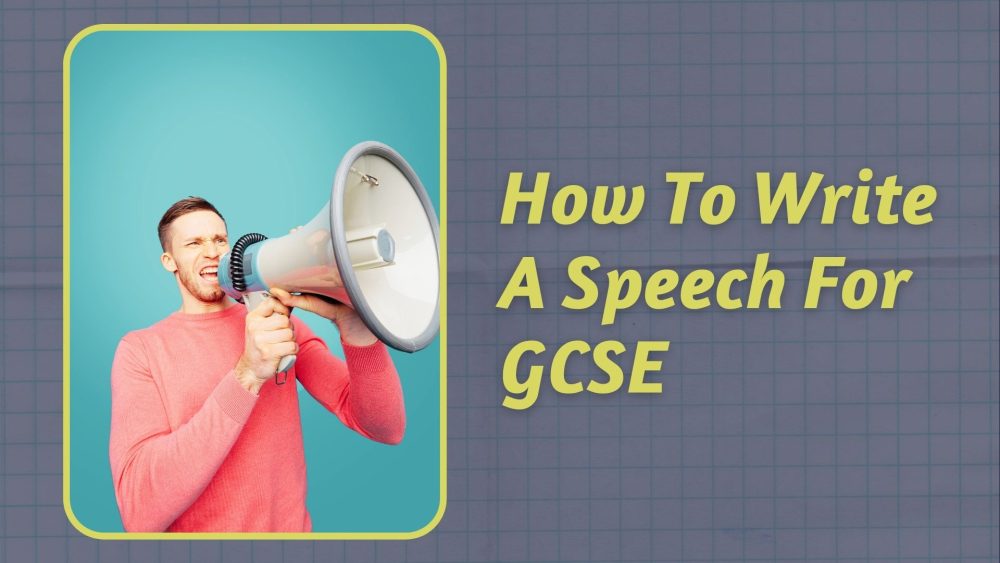
Are you a college or uni student who has been struggling with writing a speech GCSE? Well, we have all it takes to help you learn how to write an address and score top-tier grades. In this guide, we will use a personalized approach showing you steps while at the same time giving you tips and tricks. With this blended approach, you will be able to crack any speech writing assignment in seconds.
Count this as having hit the jackpot with a bonus altogether! Let our English assignment help writers guide you through the entire process:
What Is GCSE?
It is the acronym for General Certificate of Secondary Education. It refers to an academic qualification which the student attains in a given subject. GCSE is mainly taken in Wales, England, and Northern Ireland. However, it can also be taken in other countries, depending on their curriculum.
In most cases, GCSE studies take place over two to three years. Nonetheless, this depends on various aspects, including:
The most tested areas in GCSE include actual writing, general knowledge, and numerical skills. Students will have to take all units for a single subject in one examination series. GCSE is accessible to students in schools, while those re-sitting or in private entries will incur variable fees.
Understanding Speech For GCSE
The GCSE English speech refers to an official verbal presentation that is meant to achieve a specific goal. Speeches are meant to convince or ask a particular audience to buy into your idea. Top-notch speeches will always make the audience pay attention to your subject of discussion. That is why you need to learn how to write a good speech.
Once you master the speech structure, you can compile an award-winning paper that will move masses. Such a paper will give you a sense of satisfaction and make your audience feel like part of the speech.
In most cases, such speeches contain a clear perspective. A dynamic and memorable address will only be possible if you can fully consolidate all the different parts of such an assignment. Students who know how to structure a speech will also take the least time to write such a paper.
Do you want to become a pro in speech writing? Scroll down.
Process of Speech Writing
Before you even think of beginning your speech, there are essential points to consider. I call these ‘the big 4’:
- Nature of your question: Is it persuasive or informative?
- Length of your paper: It will determine the extent of your research
- Objective of the assignment: It will determine the angle you take in the thesis statement
- Time available: This will help you plan accordingly in terms of research and writing
Without these four crucial elements, your speech in the English language will only be a candidate for lower grades. Once you know how you will go about them, it is time to get into the real thing. That is where the format and style come in to convince your reader of your viewpoint.
How To Write A Speech Introduction
The introduction is always the first paragraph of any writing that ushers the reader into your subject matter. For a speech, the opening will entail an introduction of yourself. One would relate this to your head which identifies you. The introduction for a GCSE English speech gives you the privilege of showcasing your introductory skills to any audience.
A catchy introduction always serves as bait for your audience. Once the audience reads it and gets all psyched up, it will stick with you to the next section. What would you do if you were part of an audience seated in front of a boring presenter? Would you have the guts to stick around to the end? I bet you would find something ‘constructive’ to do as the boring man entertains himself on the stage.
That will always be the case if your introduction does not spark any sense of urgency or curiosity in the listeners’ minds. Here are some quick tips for an outstanding introduction:
- It should get the attention of the audience
- It should portray your credible position
- It ought to reveal the topic briefly
- It should have a thesis and a preview.
You can use a story, shocking statement, quote, or testimony to get your audience’s attention. Remember that the impression you create at first will determine how the reader will behave towards your speech to the end.
For example:
‘Greetings, and thank you for taking the time out of your busy schedule to listen. I am Clifford Pound, ready to take you through this great topic on ….’
From the English GCSE speech introduction above, you can note the writer uses polite language and introduces himself with his full name.
Writing The Body Of An English GCSE Speech
The body carries the main chunk of the paper, and as such, a lot goes in here. Some students have great introductions for their speeches but end up messing in the body. That should not be the case for you who are reading this professionally crafted article.
Now, the body of any form of writing comprises of the following:
- Topic sentence
- Explanations to the topic sentences
- Examples of evidence supporting claims made
Having great English GCSE speech ideas will propel you towards a creative and unique paper. If you can recall, we mentioned that speech essays could either be persuasive or informative. Having identified which type you are writing on, you will frame your topic sentences accordingly.
Unlike other forms of writing, a speech uses a different approach. There are rules of speech writing that dictate how the body will look in GCSE speech. Remember that here, you are talking to an audience, and as such, there are several considerations to ensure a smooth conversation.
Ensure that the topic sentences present answers to the thesis statement in the intro. When making your arguments, you should always refer to the information you posted in the introduction. It should guide how you frame your topic sentences. Provide detailed explanations to your topic sentences. Break down the topic sentence into a manageable chunk that the audience can understand better. The speech format also requires that you use a dialogue kind of language to make the audience part of the speech. Use illustrations to demonstrate the point you want to drive home. You can use examples that these people can relate to so that they understand better. Another option would be to use vivid descriptions to describe various aspects of your speech, such as people or events.
These speech features will give your paper a professional look and make it stand out among the rest. Always ensure that the body paragraphs are grammatically correct and smooth flow from one section to another.
Speech Format: Conclusion
The length of different speeches affects the reception and engagement of the audience. The audience might get bored midway for an extended address and overlook the ending because of the fatigue. That is why you should have a strategic conclusion that will either be a portion of food for thought or take home for the audience.
In most cases, conclusions sum up everything you discussed in the body. However, how you do this summary matters a lot. Here are some of how you can end your speech:
Summarizing the main points Repeating some of the phrases or keywords for emphasis Highlight the relevance between the points mentioned and your goal Reinforcing the main idea You can also conclude with a clinching personal anecdote.
Always ensure that the ending captures the attention of every listener so that they can take something home. You can also end with a twist that will leave the readers pondering on what step to take. Some listeners who did not get much in the body paragraphs will have something to carry home if you have a catchy ending.
Evaluation Of A Speech GCSE Exam
When evaluating such a test, the writer’s method of writing and effectiveness in achieving the desired aim are put on a scale. There are various pointers used during evaluation such as:
If you feel certain emotions If the speech informed, persuaded, or entertained the reader Individual methods used
The evaluation also involves stating whether you agree with a particular statement or not. Different teachers may have various evaluation methods, but those mentioned here are standard. There might also be a difference among other schools.
How To Make A Good Speech
There are many ways of writing a winning speech painstakingly. Since we have now examined the structure and format, other vital components will help you ace your address in no time. Have a read:
- Always express your opinion: It is vital to write what you think about a particular phenomenon personally. That will make it easier for you since you are familiar with such experiences. You should ensure that your opinion stands out engagingly.
- Writing from the 1st person: Use ‘I’ as you register to make the audience recognize that whatever you are saying is your opinion. Addressing the audience will help to increase engagement. The nouns you use should bring the audience into the speech and make them ponder how the argument applies to them.
- Add something personal: Using anecdotes and personal details will make your audience relate to you and thus agree quickly with what you say. You can accomplish this by narrating a brief story about yourself that is rather engaging and captivating. Providing quick personal details would also make the audience identify with you. However, remember that this should not take up much of the time; it should be as brief as possible.
- Using emotive language: Appealing to the audience’s emotions is one of the fundamental tenets of any form of writing. With speeches, expressive languages help to paint an accurate picture of your narration. For instance, terms like corrupted or pure would come in place of good or bad. However, over-using emotive language may reduce the effectiveness of all your words. They should only appear sparingly and reasonably.
- Using figurative language: It helps to create a powerful image in the minds of the audience. Symbolic languages come in various forms, including similes, metaphors, and imagery, among others. It would be best to avoid the temptation of over-using them since they may distort the message of your speech completely.
- Using contrast: This technique creates a clash of imagery in the mind of the audience. Contrasting words and phrases in your sentences can help you achieve this effortlessly.
Your focus should always be on the topic at all times. The objective of your speech should dictate the styles and formats to use.
Don’t Feel Like Writing Your Own Speech?
If you still experience challenges, you can always use our comprehensive ‘how to write a speech GCSE template.’ Furthermore, we also provide top-class advice from ENL writers on the various aspects of GCSE speeches. When you choose to pay for assignments , choose us!
Our custom assignment help will help you rise to the ranks of top performers in no time. Get online today and try out our special assistance from English gurus.
Get on top of your homework.

Leave a Reply Cancel reply
Your email address will not be published. Required fields are marked *
Speeches are usually designed to persuade the audience or sometimes even inspire the audience. Good speeches are not boring and will use lots of emotive language as well as rhetorical techniques.

What is contained in a speech?
- Addresses the audience directly (says ‘you’ or ‘we’ ) to motivate action or support.
- E.g. Rhetorical questions - ' Should you good people have to put up with this?' .
- Have one or two clear arguments that they link their paragraphs back to.
- A mixture of short and long sentences so that the listener keeps paying attention.
- E.g. ' Thank you for listening' .
- A strong conclusion to motivate action.
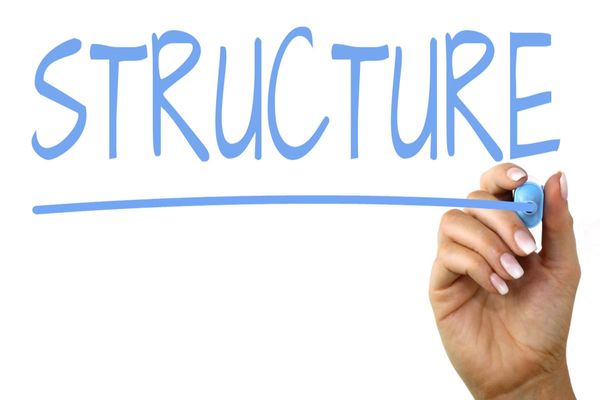
How to write a persuasive speech?
- Persuasive speeches need a structure that allows the audience to remember their message and be motivated to act upon it.
- Having a key message and a peak or climax in a speech can create momentum, which excites the crowd. Things that are emotive are remembered more easily.

Tips for writing speeches
- Speeches are presented, instead of read like a book.
- This makes the literary techniques like alliteration, rhetorical questions, sibilance, onomatopoeia, repetition, and rule of 3 more powerful.
- Try reading each paragraph in your head after writing it.
1 Key Terms
1.1 Key Terms
1.1.1 Key Terms - Nouns, Verbs & Sentence Types
1.1.2 Key Terms - Words, Sounds & Language
1.1.3 Key Terms - Images, Symbols & Mood
1.1.4 Key Terms - Other Techniques
1.1.5 End of Topic Test - Key Terms
2 Language Techniques
2.1 Language Devices
2.1.1 Metaphors
2.1.2 Similes
2.1.3 Metaphors & Similes HyperLearning
2.1.4 Personification
2.1.5 Pathetic Fallacy
2.1.7 Oxymoron
2.1.8 Hyperbole
2.1.9 Alliteration
2.1.10 Sibilance
2.1.11 Onomatopoeia
2.1.12 Emotive Language
2.1.13 All Language Devices
2.1.14 End of Topic Test - Language Devices
2.2 Writing Structure
2.2.1 Narrators
2.2.2 Paragraphs
2.2.3 Tense
2.2.4 Present vs Past vs Future
2.2.5 Foreshadowing
2.2.6 Structure
2.2.7 End of Topic Test - Writing Structure
3 Paper 1: Reading
3.1 Structuring Your Answer - Section A
3.1.1 Overview - Section A
3.1.2 Answering Question 1
3.1.3 Answering Question 2
3.1.4 Exam-Style Questions - Paper 1: Reading
3.1.5 Answering Question 3
3.1.6 Answering Question 4
3.1.7 End of Topic Test - Section A
3.1.8 Exam-Style Questions - Paper 1: Reading
4 Paper 1: Writing
4.1 Structuring Your Answer
4.1.1 Overview - Section B
4.1.2 Answering Section B
4.1.3 Answering Section B - Checklist of Techniques
4.1.4 End of Topic Test - Writing Section
4.1.5 Exam-Style Questions - Paper 1: Writing
5 Paper 2: Reading
5.1 DAFORESTER
5.1.1 Direct Address
5.1.2 Alliteration
5.1.3 Facts
5.1.4 Opinions
5.1.5 Repetition
5.1.6 Exaggeration (Hyperbole)
5.1.7 Statistics
5.1.8 Triples (Rule of 3)
5.1.9 Emotive Language
5.1.10 Rhetorical Questions
5.1.11 End of Topic Test - DAFORESTER
5.2 Structuring Your Answer
5.2.1 Overview - Section A
5.2.2 Answering Question 1
5.2.3 Answering Question 2
5.2.4 Answering Question 3
5.2.5 Exam-Style Questions - Paper 2: Reading
5.2.6 Answering Question 4
5.2.7 End of Topic Test - Section A
5.2.8 Exam-Style Questions - Paper 2: Reading
6 Paper 2: Writing
6.1 Structuring Your Answer
6.1.1 Overview - Section B
6.1.2 Answering Section B - Punctuation & Plans
6.2 Types of Writing
6.2.1 Article
6.2.2 Essay
6.2.3 Leaflet
6.2.4 Letter
6.2.5 Speech
6.2.6 Review
6.2.7 Travel Writing
6.2.8 Diaries & Journals
6.2.9 End of Topic Test - Types of Writing
6.3 Writing to...
6.3.1 Writing to Inform
6.3.2 Writing to Inform - Example
6.3.3 Writing to Explain
6.3.4 Writing to Explain - Example
6.3.5 Writing to Persuade
6.3.6 Writing to Persuade - Example
6.3.7 Writing to Argue
6.3.8 Writing to Argue - Example
6.3.9 Writing to Persuade vs Writing to Argue
6.3.10 Writing to Advise
6.3.11 Writing to Advise - Example
6.3.12 End of Topic Test - Writing to...
6.3.13 Exam-Style Questions - Paper 2: Writing
Jump to other topics

Unlock your full potential with GoStudent tutoring
Affordable 1:1 tutoring from the comfort of your home
Tutors are matched to your specific learning needs
30+ school subjects covered
- International
- Schools directory
- Resources Jobs Schools directory News Search
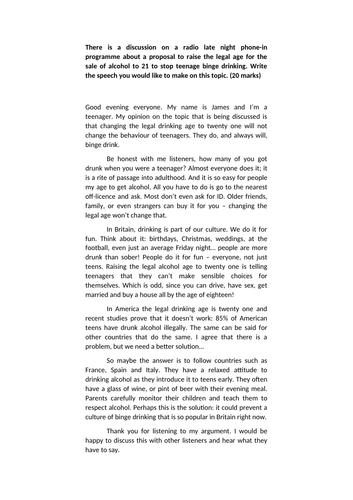
GCSE Speech Writing
Subject: English
Age range: 14-16
Resource type: Unit of work
Last updated
1 February 2021
- Share through email
- Share through twitter
- Share through linkedin
- Share through facebook
- Share through pinterest

GCSE Speech writing questions, model answers and a peer assessment checklist
Creative Commons "Sharealike"
Your rating is required to reflect your happiness.
It's good to leave some feedback.
Something went wrong, please try again later.
A very generous share- some really well planned resources
Empty reply does not make any sense for the end user
clcatterall
Northernlady.
Great resource to pick up and use immediately!
geraldinedaly
Thank you for sharing! Great resource!
sage_mcparland
Amazing resources! Thank you!
Report this resource to let us know if it violates our terms and conditions. Our customer service team will review your report and will be in touch.
Not quite what you were looking for? Search by keyword to find the right resource:
Writing a speech
Topic outline.
The purpose of a speech is often to inform or persuade an audience.
Speeches are usually written to be spoken directly to an audience and can be used to entertain, influencing the listeners that the viewpoint of the speaker is correct.
Speeches can also be used to encourage the audience to take action or to change their behaviour in some way; for example, to join a particular school club or society, or to recycle more.
The ways you use language and vocabulary when writing the words of a speech will depend on the audience and the purpose you are writing for; for example, in a speech to a group of teachers and parents giving your views on a recent proposal, formal language is most appropriate.
- think about the audience that the speech is for – are you giving your speech to a group of people you know, or do not know, or a mixture of both? If you know your audience well, you may be able to relax a little, but a speech is still a formal kind of talk and would usually not include slang
- whether your audience are likely to disagree with what you say – you will need to consider any possible objections and deal with them. Use language carefully to make objections seem less significant; for example, using phrases like ‘A few people may still think, however’
- the reason you are giving this speech and how you feel about this topic – try to imagine the words of your speech as you would speak them out loud. Your tone of voice must match your message, so choose words that appeal to the emotions of your listeners. Focus on what you want your audience to know and feel by the end of your speech
- how to engage your listeners – f or example, you might use inclusive words or phrases like ‘we’, ‘all of us’ and ‘our’ to make your listeners feel that you are all on the same side.
- Plan where you want to finish your speech and how you will get there before you start writing – t h e structure of a speech is usually in three parts. For example:
- An opening that grabs your audience's attention and makes the overall topic of your speech clear – for example, pose a question to the audience where you can predict the answer.
- A well-structured, supported and developed argument – for example, to support your argument you might use real life examples or anecdotes.
- A powerful conclusion – for example, group your final words or ideas in threes to help make them memorable or end with a thought- provoking question or image and thank your audience for listening.
- Organise your ideas into paragraphs as appropriate – this will help you to develop and support your points convincingly, to build your argument and/or offer a full explanation of a particular point of view.
- S how the connectio ns between ideas in sentences and paragraphs – where a new point or idea follows on from what you have already said you might use linking words or phrases such as, ‘in addition’, ‘likewise’ or ‘similarly’.
- Example of a speech
- Games, topic printables & more
- The 4 main speech types
- Example speeches
- Commemorative
- Declamation
- Demonstration
- Informative
- Introduction
- Student Council
- Speech topics
- Poems to read aloud
- How to write a speech
- Using props/visual aids
- Acute anxiety help
- Breathing exercises
- Letting go - free e-course
- Using self-hypnosis
- Delivery overview
- 4 modes of delivery
How to make cue cards
- How to read a speech
- 9 vocal aspects
- Vocal variety
- Diction/articulation
- Pronunciation
- Speaking rate
- How to use pauses
- Eye contact
- Body language
- Voice image
- Voice health
- Public speaking activities and games
- About me/contact
- Speech delivery
Cue cards for public speaking
How to make cue cards & use them effectively.
By: Susan Dugdale
Making good cue cards from standard office supply index or note cards to help you confidently deliver an extemporaneous speech is relatively easy. And using them well will lift the quality of your presentation immeasurably. (Truly! I promise you that's not hyperbole. ☺)
What's on this page
Step-by-step guidelines on how to make cue cards and use them well:
- what are cue cards ?
- the benefits of using cue cards
- the materials required to make cue cards
- the 10 features of an effective cue card
- how to write up cue cards - the 3-step process to get from a speech outline to cue cards that work the way you want them to
- how to rehearse with cue cards
- the difference between cue cards and flash cards
What are cue cards?
Cue * or note cards, used by speakers when making an extemporaneous speech * , are typically handheld. They are about 4 inches by 6 inches in size, with carefully selected and ordered words and phrases written on them. These act as prompt to help speakers remember what they have to say.
* A cue is a signal or a prompt to say or do something. * extemporaneous speech -a well-prepared speech that relies on research, clear organization, and practiced delivery, but is neither read nor completely memorized.
The benefits of using cue cards
People who do not use cue cards to help them deliver a prepared speech either read it from a word-for-word printout or rely entirely on their memory.
However, both these delivery methods have potential traps for the unwary.
- Reading a speech well is a skill and like any skill it needs work to become proficient at it. Someone who hasn't practiced reading aloud is very likely to be difficult to listen to and to watch.
- Opting to deliver a speech entirely from memory is only effective if you've done enough practice. A blank-out and trying to chase down lost words in front of an audience can be hard to recover from. (There is no safety-net!)
Enter cue cards!
The benefits of using cue cards well are:
- Not being anchored to a podium reading the entire text of your speech. This enables you to freely interact with your audience: -to make eye contact, -to observe and readily respond, for instance to clarify a point you can see has not been understood, to leave out bits you can tell are not wanted or needed..., -to gesture and move easily.
- Not being left stranded and floundering because you have forgotten important details, or the sequence of your material. Cue cards are reassuring.
A well-prepared set of cue cards will give you confidence. You will sound, look and feel more present, and your entire delivery will have more life, more energy!
For those of you who are nervous about making the transition from the safety of a complete sentence by sentence script to note cards, don't be. Take it slowly. Give yourself time to thoroughly prepare and rehearse with them, and you'll be delighted with the result.
The materials needed
You'll need a packet of standard index cards, similar to the one in the illustration below, a selection of highlighters, (for example, yellow, pink, blue and green), and an easily-read pen. I suggest using one with either blue or black ink.
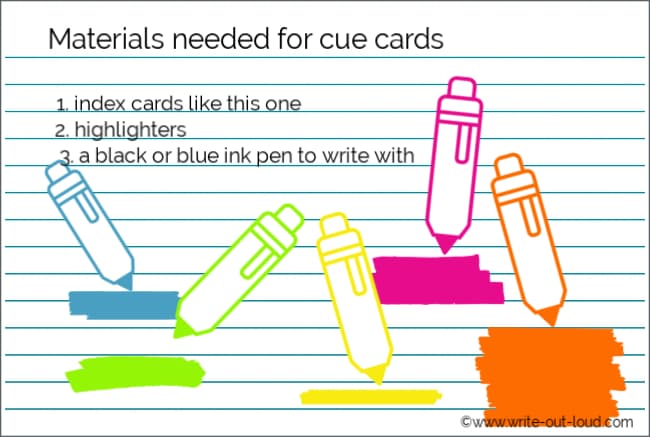
The 10 features of good cue cards
The information you put on your cards and how you lay it out is critically important. You need to be able to read and understand them at a glance. (See the illustration below)
The most user-friendly cue cards:
- have ONE main subject heading or idea per card
- have a heading showing which part of the speech the card belongs to
- are written or printed clearly using larger than usual font - so you can read them easily
- have plenty of white space around each word or phrase to help them stand out
- use bullet points or numbers to itemize the supporting ideas under the main heading
- are written on ONE side of the card only
- are clearly numbered so that you know the order they come in and it can be a good idea to tie them together . Use a hole punch to make a hole through the left corner of your cards and tie with a loop of string long enough to allow them to be flipped. The advantage of that is if you drop or somehow get them out of sequence, you're not scrabbling around trying to get them back into the right order and find where you'd got up to while being watched. That can be tough with dozens of pairs of eyes on you!
- are color-coded to show your main idea, supporting ideas, examples and transitions or links.
- have where props are to be shown . For example: Main Idea One - Supporting Idea - Example - Show slide 1
- have approximate timings marked so you can track yourself through your allotted time. If you find you're going over you can adjust by leaving out an extra example or conversely if you're under time, you can add one in.
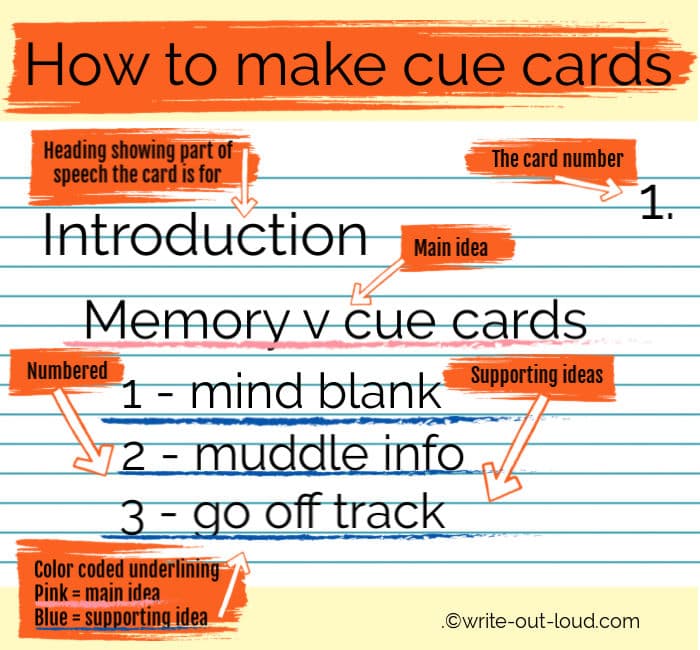
Preparing your speech for cue cards
Before starting the cue cards you need to make sure your speech is fully prepared.
The next 3 steps are an essential part of the preparation process.
1. Reviewing your speech outline
Using your speech outline go through from the beginning checking the sequence of ideas, supporting material and transitions to ensure all your information is in an effective and logical sequence. (And if you haven't made an outline yet download and use the blank one available from the link below.)
Have you outlined your speech?
If you haven't got a speech outline already prepared ...
Use the printable blank speech outline template you'll find on this page: sample speech outline . It will make preparing your cue cards a breeze.
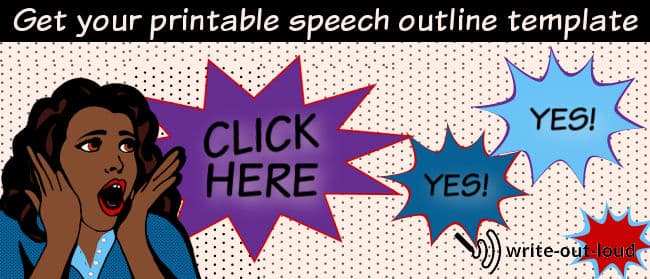
2. Try your speech out loud
Use your outline to try your speech out loud. Say it through as if you were actually giving it and time yourself.
Remember to allow for pausing, waiting for the audience to finish laughing before you begin talking again, and so on.
You may need to edit if it's too long and it's a lot easier to do that at this stage.
3. Feedback
Once you have the length right for your time allowance, ask a few people whose judgment you trust to listen to you give your speech. Have them give you feedback on its content, structure and delivery, paying particular attention to the introduction and the close.
(For more information see speech evaluation| giving and receiving meaningful feedback .)
Use the feedback you've been given to rework your speech if you need to.
When you're satisfied you have it the best it can possibly be, you're ready to prepare it for cue cards.
Getting from outline to writing up your cue cards
Identifying good keywords and phrases.
Each segment or part of your speech, from its introduction to conclusion, should be reducible to a key word or phrase. The phrase or keyword will act as a prompt, or trigger, making you immediately remember what it was you wanted to say.
Before you can write your cue cards you need to go through your speech outline and choose a word or phrase that best represents what each part is about.
Once you've finished, you're ready to write up your cards using the 1-10 guidelines above.
Test your cards as you make them
Double check the effectiveness of each card as you write them to make sure you are using keywords or phrases that actually do trigger your memory.
This is also particularly important for links or transitions. Forgetting how you got from one piece of information to the next not only leaves you stranded but your audience as well.
NB. Be sure to note the names of important people, facts or processes too.
A word of warning
Do not be tempted to print or write the whole of your speech out, then cut it into bits and stick those bits onto cue card sized pieces of cardboard. * It will defeat your purpose entirely.
You'll finish with ridiculously cramped notes that, as well as being difficult to read, stop you from freely interacting with your audience. You'll be head down trying to decipher what you wrote!
* (I've seen it in action! Occasionally one of my student's would try it and the result was never, ever good.)
Rehearsing with your cue cards
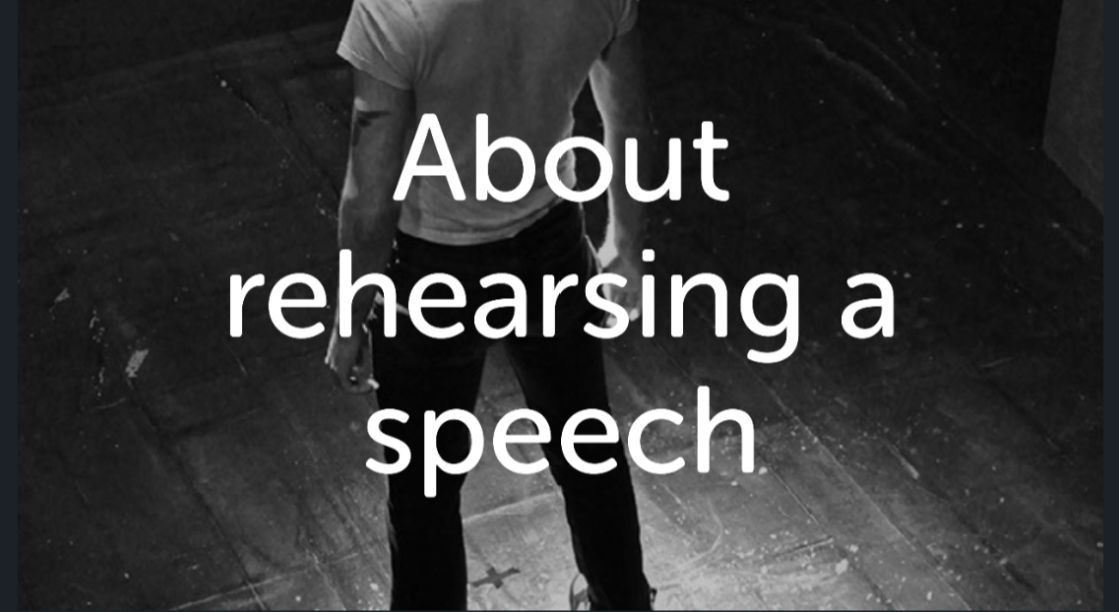
You'll find a full page here on ' how to rehearse ' .
It includes notes specifically on rehearsing using your cue cards as well as other valuable tips for delivering your speech successfully.
Now that you've completed your set of cards, please don't shortchange yourself by assuming you are fully prepared and ready for delivery.
To use them well you really do need to practice with them. Before you give your speech aim for at least three concentrated rehearsal sessions and do more if possible.
Cue cards and flash cards. What's the difference?
The principal difference between them is their purpose.
Flash cards are used to help memorize information for example, vocabulary lists for a new language you're learning, the sequence of events leading to the outbreak of WW2, or the names and placement of all the bones in the human body.
They frequently have diagrams and pictures as well as words on them to make the information easier to remember.
The goal or purpose of them is instant recall. They are extensively used by students, particularly as part of their exam preparation.
In comparison, cue cards are generally larger than flash cards and have less information on them - just an ordered sequence of a speech's key words and phrases.
Whereas flash cards are used prior to an examination or test, cue cards are used during a presentation. Their purpose is to prompt or remind the speaker to say what they wanted to.
speaking out loud
Subscribe for FREE weekly alerts about what's new For more see speaking out loud

Top 10 popular pages
- Welcome speech
- Demonstration speech topics
- Impromptu speech topic cards
- Thank you quotes
- Impromptu public speaking topics
- Farewell speeches
- Phrases for welcome speeches
- Student council speeches
- Free sample eulogies
From fear to fun in 28 ways
A complete one stop resource to scuttle fear in the best of all possible ways - with laughter.

Useful pages
- Search this site
- About me & Contact
- Blogging Aloud
- Free e-course
- Privacy policy
©Copyright 2006-24 www.write-out-loud.com
Designed and built by Clickstream Designs
How to write a speech
Part of English Non-fiction writing
Did you know?
The longest speech ever recorded in the UK Parliament was delivered in the House of Commons in 1828 and lasted for six hours!
Introduction to how to write a speech
Speeches are a powerful way of expressing your ideas to others.
When writing a speech, you need to think carefully about how you structure it to make sure it is easy for listeners to follow.
In order for it to be engaging, you need to consider the language you use, ensuring that you target your audience and their interests. In fact, there are a range of language techniques that can help to make your speech even more powerful.
Video on how to write a speech
This video can not be played
To play this video you need to enable JavaScript in your browser.
Find out how to write a speech
What is a speech?
A speech is a formal talk given to an audience. It has an aim and purpose – often to either inform and/or persuade, although it’s important to remember that some have other intentions too, eg to entertain.
Speeches are used in many different contexts. A bride or groom may give a speech at their wedding. A politician or activist may give a speech to inform others of the need for change, and persuade them of the right way to bring it about. A manager may need to give a speech to their employees or bosses. A speech may even be given when you leave school to reflect upon your time in education and inspire others to look to the future.
Speeches are not necessarily something we do every day, but speech writing is a useful skill to have.

More on Non-fiction writing
Find out more by working through a topic
How to write a formal letter
- count 10 of 10
Linking words and phrases
- count 1 of 10
How to plan and draft your writing
- count 2 of 10
Writing to persuade
- count 3 of 10

IMAGES
VIDEO
COMMENTS
When planning, remember to: Underline key words from the question and blurb. Underline the audience you will be delivering your speech to. Decide on your "voice" and point of view. Write a one-sentence statement that summarises your point of view. Note down the points you can develop to support your point of view.
Structure. A speech often follows a three part structure: a highly engaging and motivational opening. a well-structured argument with several main points that include. objection handling. close ...
When writing a speech in an English exam, always stay focused on the topic you have been asked to write about. Never derail from the subject of the speech you are writing. This will make you lose marks. This is why it is so important to plan your speech before you begin writing it. Think through the structure you are going to use and stick to it.
Using powerful language. The language used in a speech should be interesting for the listeners. The acronym A FOREST is an easy way to make sure your language is powerful. It stands for: Watch ...
The style of the writing (sentence structure and overall structure) is dynamic and effective Below you will find a detailed model speech in response to an example of Paper 2 Question 5, under the following sub-headings (click to go straight to that sub-heading): Writing a GCSE English Language speech; Structuring your speech
Here, we'll delve into the speech structure and discuss how to structure a speech for maximum impact. A typical speech will consist of an introduction, body, and conclusion. Introduction: Capture attention and state your main point. Body: Build your argument or narrative with supporting evidence. Conclusion: Summarise the key points and ...
Fantastic PowerPoint on writing a GRADE 9 SPEECH. Also comes with a podcast from an examiner. The resource looks at the following: GRADE 9 example Sentence starters SPEECH form SPEECH conventions DAFOREST Stylistic devices Lecturer tips Common mistakes SPAG
Writing from the 1st person: Use 'I' as you register to make the audience recognize that whatever you are saying is your opinion. Addressing the audience will help to increase engagement. The nouns you use should bring the audience into the speech and make them ponder how the argument applies to them.
Speeches are presented, instead of read like a book. This makes the literary techniques like alliteration, rhetorical questions, sibilance, onomatopoeia, repetition, and rule of 3 more powerful. Try reading each paragraph in your head after writing it. Speeches are usually designed to persuade the audience or sometimes even inspire the audience.
Voice variation - Vary your volume and pitch to keep your audience engaged. You might raise your volume to emphasise a key point or lower it to create suspense. Pace control - Adjust your speaking speed according to the mood and content of your speech. You might speak quickly to show excitement, or slowly to allow a complex idea to sink in.
Buy my revision guides in paperback on Amazon*:Mr Bruff's Guide to GCSE English Language https://amzn.to/2GvPrTV Mr Bruff's Guide to GCSE English Literature...
The language used in a speech will vary depending on the audience. In a speech to a professional audience, such as a business pitch or a talk to headteachers, formal close formal The standard or ...
Lessons designed to assist GCSE students with writing a speech. The first lesson generates some discussion and recognition of features of a speech, with the second lesson focusing on the students creating their own speech. This was designed for IGCSE but can be used for any sessions. Creative Commons "Sharealike".
This will help you receive a better mark overall because your teacher is more likely to remember your speech. The best way to begin any speech is to introduce yourself. You will be doing the oral assessment in front of your teacher and possibly some of your classmates, so they do already know who you are.
docx, 16.92 KB. docx, 13.17 KB. pptx, 10.73 MB. docx, 14.58 KB. docx, 20.82 KB. GCSE Speech writing questions, model answers and a peer assessment checklist. Creative Commons "Sharealike". A very generous share- some really well planned resources. Thank you.
Speech or talk. In a speech or talk you should: Address the audience directly throughout; Engage the audience in your introduction: Outline the topic; Use persuasive devices to hook the audience, such as rhetorical questions to get them thinking; Structure your speech logically, building your arguments persuasively:
The purpose of a speech is often to inform or persuade an audience. Speeches are usually written to be spoken directly to an audience and can be used to entertain, influencing the listeners that the viewpoint of the speaker is correct. Speeches can also be used to encourage the audience to take action or to change their behaviour in some way ...
Whether you are aiming for a C grade or an A* you should aim to do everything I cover in this chapter in your section B answer. Section B is the writing section of the exam, requiring you to write two long answers. You are recommended to spend around 25 minutes on question 5 and 35 minutes on question 6. Around 1/3 of the marks available in ...
Cue * or note cards, used by speakers when making an extemporaneous speech *, are typically handheld. They are about 4 inches by 6 inches in size, with carefully selected and ordered words and phrases written on them. These act as prompt to help speakers remember what they have to say. *A cue is a signal or a prompt to say or do something.
The opening. Start with an opening that hooks your audience before making the overall topic of your speech clear. Get their attention and prepare them to focus on the words that will follow. For ...
Cover letter sample for a speech-language pathologist To help you learn more about cover letters, here is a sample speech-language pathologist cover letter: Chuck Ferris Vancouver, BC 613-555-0123 [email protected] March 20, 2024 Mr. Bob Richardson Wavewood Speech Dear Mr. Richardson, I am writing to express my interest in the speech-language pathologist position listed on your website for ...
AQA: Paper 2: Question 5. Edexcel: Component 2: Section B. OCR: Component 01: Section B. CIE (IGCSE): Paper 2: Section A. WJEC: Unit 3: Section B. It's important to note that the nonfiction text you will be asked to write might not be an article, but a speech or letter. See our tips below (on "Form") for more details on how to distinguish ...